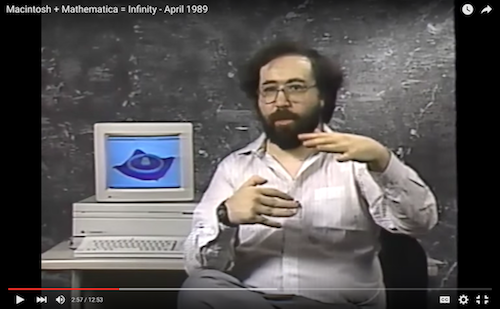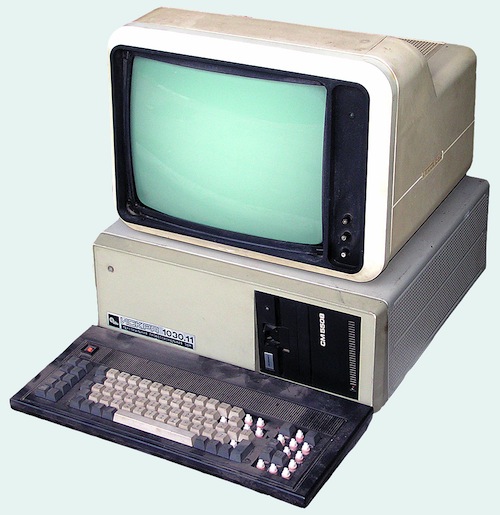When I was 15 years old General Motors dropped a big V8 into the Chevy. That was one of the happiest days of my life. I couldn't wait to drive one of those Chevies. And I had exactly the same feeling when somebody dropped Mathematica into a Macintosh.
This is one of my favorite quotes about Mathematica. It is by Jerry Uhl, a math professor from the University of Illinois at UrbanaChampaign, said in 1989, as you can witness in the video below.
For those of you who enjoys history, here is a wonderful piece, a glance into the Wolfram past. There is a YouTube channel, The ReDiscovered Future, which acts as the public "silver screen" of an initiative that aims to rescue video and audio recordings from older, volatile formats, store them on more reliable media, and share them with the world. They've just published a delightful video:
Macintosh + Mathematica = Infinity - April 1989

I like how there are so many things that said then but still hold true. Of course this goes for the Alfred North Whitehead quote they started from:
Civilization advances by extending the number of important operations which we can perform without thinking about them.
And the quote from student Donald Brown: "
With the use of Mathematica you are allowed in some sense to wander into zones of thoughts where you might not be inclined to go otherwise.
Note already then the ideas of automation, Computer Based Math, data accessibility, and diversity of computation in sciences. In the video Donald A. Glaser, who got the Nobel Prize in Physics 1960 for the invention of the bubble chamber speaks very nicely of importance of automation for cultivating intuition:
I think science will always have the same amount of perspiration and inspiration as before but we will eliminate calculus and differential equations and graphics from the perspiration category and that'll give us more time for having more sophisticated inspirations.
Mathematica hadn't touch me then yet. I experience it fully later coming to USA. But then in 1989 we of course did do some computing in Soviet Union. That was two years before the Soviet regime would end after 69 years of reign. We used computers like the one shown on the photo below. The Iskra-1030 was a Soviet version of IBM's PC/XT, a personal computer based on the processor analogical to the Intel 8086. The model had 256 KB RAM expandable to 1MB, also featured hard drives - up to 10 MB.
So I did not use Mathematica, but I did run some programs simulating Cellular Automata that I was reading about in Stephen Wolfram papers already published then. They were fascinating systems to me, because of the mysterious link between simplicity of rules and complexity of behavior. So the most fundamental NKS computations of simple programs reached me earlier. What a pleasant surprise was to discover CellularAutomaton function in Wolfram Language later that replaced pages of my old Soviet code.
What do you think? Any recollections or quotes? How did Wolfram ideas enter your life?
